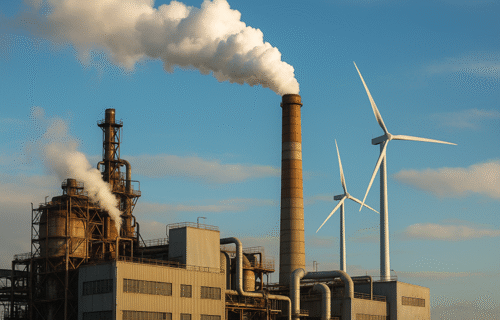The Czech Republic would have to commit several trillion crowns to modernising industrial production in order to meet the European Union’s new 2040 climate goal, according to a study presented by the Confederation of Industry. The analysis argues that the scale of investment required over the next 15 years would exceed what most domestic companies—especially those dependent on high energy use—can realistically finance or implement.
Representatives of the Confederation said the pressure on factories to reduce emissions far more quickly than in previous decades would place Czech firms at a growing disadvantage compared with competitors operating under less demanding rules. Heavy industry, including metals, chemicals and producers of cement, glass and other mineral materials, is identified as the most exposed.
The EU agreed earlier this month that the bloc should reduce emissions sharply by 2040. National contributions may differ, but companies across Europe will be expected to adopt cleaner processes, use new fuels and technologies, and adjust to stricter environmental policies.
According to the study, Czech manufacturers would need to switch to a much higher share of electrified production, introduce technologies using hydrogen or carbon-capture methods, and upgrade large parts of their equipment. Many of these options remain either unproven at commercial scale or significantly more expensive than existing technologies. Industry representatives said the required investments could not be financed without outside support, noting that company profits have already been under pressure in recent years.
The study outlines several investment paths. Two of them assume deep emissions cuts and require total spending in the range of three trillion crowns or more. A third scenario, which the authors describe as closer to what companies could realistically manage, involves less extensive reductions and roughly one trillion crowns of investment.
Business groups argue that if the targets remain unchanged, the Czech Republic risks losing production capacity to regions with more favourable energy costs and regulatory conditions. They are urging the government to take domestic conditions into account during EU negotiations and to adopt measures that would ease the transition. Their proposals include quicker tax write-offs for green investments, simpler approval procedures, and steps to stabilise energy prices for the most exposed sectors.
According to the Confederation, long-term clarity over policy and financing tools will be crucial for companies deciding whether to upgrade facilities in the Czech Republic or relocate production elsewhere.
Source: CTK and CIJ EUROPE Analysis Team
